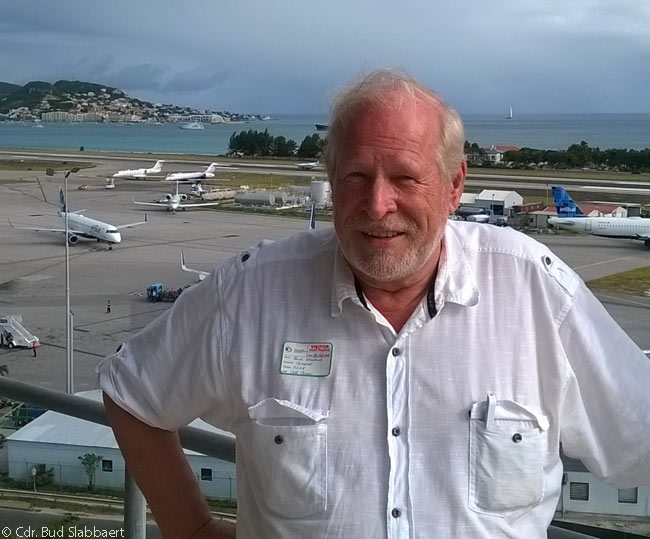

Transit Visas for the United States? Why? UNWTO Secretary General agrees…
After devastating natural hurricane disasters, Caribbean countries are struggling to bring the islands together. MOU signed at the just-concluded UNWTO Sustainable Tourism conference in Montego Bay opened more doors to establish enhanced and direct air service to and between the island countries.
Besides the lack of air services to fly from one island to another, also air-connections to the island often involves a change of aircrafts in the United States. US airports including Miami, Ft.Lauderdale, Houston, Dallas, Atlanta, Newark, JFK are some of the connecting points for tourists to reach a Caribbean State like Jamaica.
This is profitable for U.S. airlines including American, Delta, United, SouthWest, and others, but a nightmare for some travelers arriving from a country that requires a VISA for the U.S., but no visa for the destination country, for example, Jamaica.
In almost every part of the world, this is no big deal. International airline passengers transiting through airports and not entering the transit airport country it only involves clearing a security check. Passngers walk from gate to gate and enjoy duty-free shopping in between. Dubai, Abu Dhabi, Doha, Tokyo, Beijing, Frankfurt, London, Singapore, Bangkok, Istanbul, Munich, Amsterdam, Paris, Rome, Cairo – almost every airport on the globe has transit passengers and can handle them without requiring them to clear immigration or customs at the transit airport point.
The United States of America is different. If a passenger passes through a US airport it means clearing immigration, getting your suitcase and checking in again for your connecting flight. Some say this is an abuse of passenger and in violation of international airline agreements.
Taleb Rifai, Secretary-General of the United Nations World Tourism Organization agreed. He told eTN at the just concluded UNWTO Sustainable Tourism Conference in Montego Bay, Jamaica, that it was not a pleasant experience trying to connect travel through a US airport when traveling to different Caribbean state. He said: “I have a U.S. visa, but going through immigration, facing long lines, clearing U.S. customs and checking back in and go through security again, makes this travel experience unpleasant.”
A government delegation to the UNWTO conference from Greece arrived a day late, because they had to get an “emergency” transit- visa for the U.S. before they were allowed to go on a direct itinerary from Athens to Montego Bay through New York.
Jamaica’s tourism minister Ed Bartlett said: “We are in an advance discussion with the U.S. State Department and other Caribbean nations in regards to the transit issue and a single visa for the Caribbean. There are electronic options, including visa payment options, a country could implement.”
In the meantime, the majority of all flights to the Caribbean touch a U.S. port and it means delays, long lines and a complicated process unnecessary in today’s electronic world. Caribbean states are also looking for more direct flights from major gateways in Europe to overcome this hurdle.
Minister Bartlett responded that this question speaks clearly to the strategy of tourism, explaining that the MOU speaks to the harmonization of certain types of policies, particularly in relation to clearance regulations for the United States and visa facilitation, and what needs to be done in terms of making payments online. He said, “More important, is to create a single visa card that will allow an international visitor who comes into let’s say Jamaica to then have domestic arrangements thereafter. That would be enormous in terms of the airlines … and cost as well.” He said they are pretty advanced in discussions with US representatives and other destinations as well, such as the Bahamas, Aruba, and even Colombia, for example.” He said they are looking forward to the day when a visitor can fly from between islands with ease. He further explained that they are also discussing with China how to structure travel with Jamaica.
Taleb concurred with Juergen that it was not a pleasant experience trying to connect travel within the Caribbean.

Jamaica’s Gastronomical Center will open a new tasty trend to tourism
UNWTO Conference Delegates were wined and dined last night at Chukka Caribbean Adventures in Jamaica and the host had a purpose doing it. The result after a fantastic eleven-course gourmet experience was the announcement by Jamaica’s minister of tourism Ed Bartlett to establish a gastronomical center in Jamaica. According to eTN Publisher “Excellent was an understatement.”
A gourmet experience is many times a part of a tourism experience. After this first center in the Caribbean will be established in Jamaica, tourists will be able to understand how local products make its way to the market, and how to cook a delicious Jamaican’s meal. Visitors will be able to take their church groups, their wedding groups or come alone and learn about Jamaica’s cuisine. Visitors could learn how to cook, or chefs will be ready to prepare a mouthwatering experience. Gourmet will be included in promoting Jamaica as a travel and tourism destination.
Here are some photos showing the food ane wine delegates enjoyed Thursday night.














One Caribbean Tourism: A dream or just an illusion?
Airlift is a major Caribbean problem that deserves top priority because it is vital for tourism and trade, subsequently for the economic well-being of all population members of the Caribbean communities. The problem was discussed at last week’s UNWTO Sustainable Tourism Conference in Montego Bay, Jamaica.
The problem has been acknowledged for many years. No one has come up with a true common solution.
How to solve the airlift problem? It is quite complicated. Already because of the geography and the many jurisdictions. Try to define the Caribbean. It could be any area between Bermuda and the Guyanas and include the coastal areas of Central America. Yet, the countries need each other’s air transport connections. It is not a kind of project where one should expect to have a complete universal solution at once for all. It will most likely come in steps and building blocks. That is acceptable, as long as the end result is a ‘Caribbean House’ that all feel comfortable to live in.
Part of the problem is the word ‘unifying’. So let’s post the question to a person who has an objective perspective on airlift matters and panoramic view of Caribbean issues, the Minister of Transportation of the island St.Tosia, the fictitious Honourable Duncan Vanderbeest: “Unifying the Caribbean? Can it be done? Yes! Am I sure? No! Where lies the challenge? The first challenge is that one would have to unite while leaving all the differences intact! The second challenge is that there are more jokers around than a Caribbean comedy festival could stand. Last but not least, and don’t tell my colleagues that I have said this, or else they may have evil come upon me in a next summit, but, I couldn’t tell one ‘Honourable’ from another; they all sound alike.” End quote. Wow! Thank you, mister Minister, as it is an exception to hear the powerful talk as candidly as the powerless.
The solution may be a Caribbean Airlift Council. An institution that is independent of governments. It cooperates with governments and advises them when asked, yet, it is credible and highly respected to also urgently suggest and be accepted even when not asked. Where does that leave the representation of the public sector, the various business organizations or interest groups? The expression ‘Interest groups’ says a lot. They usually pursue a particular interest that is on their mind and they have organized themselves for that purpose. There are three interest segments: aviation, tourism, and investment. The Caribbean Airlift Council will cooperate with all of them and communicate but remain impartial and independent. If the Council is just a mediator in such a complicated environment, why fiddle around with a healing middleman and not immediately call a priest? Not so pessimistic! This is about new life and when differing circumstances meet, creativity is encouraged.
The primary task of the Council is finding realistic solutions for any airlift issue that has not been dealt with (past, current, and future) with a satisfactory result. This global definition in itself creates an immense field of issues. It serves all airlift stakeholders thus not just the aviation industry, but rather also the travel and tourism interests, and to a lesser degree the investment segment. The Council activities could include, consulting and advise, study, meditation, certification (e.g. Caribbean Friendly Sky concept). Several other activities may be included but cannot be listed here.
The Council shall not copy the activities which agencies or organizations are doing or supposed to do. If nothing else, it will simply outdo these actors with faster and better solutions. There are many issues that need a solution for once and for all, and rather sooner than later. The reason why these needs exist so widely is that they have never been dealt with on such a broad base. Maybe attempted on a smaller scale or a narrower base, but they have not resulted in accomplishments that serve all governments, communities or interest groups in the region. Sometimes it may have been the lack of foresight or appropriate competence; other times it was the political meddling.
The Council should NOT get any authority. If it was given authority, it may already encounter resistance by a foreseeable number of egos. Yet, the fact that the Council is an authority on the airlift subject itself, may be its most powerful instrument to have its influence and impact. Anyone who ignores the work or advises of the Council might be considered foolish. The entity should be strong-minded, undistractible, and remain focused at all times on carrying out the mission leading to the objective of solving Caribbean airlift problems. The unit should be totally integer, impartial, unbiased, neutral, and have no hidden agendas. Therefore, the Council shall be respected by all.
Creating the right organizational structure and its procedures is a challenge for itself. The members and affiliates of the Council should be competent movers and not well-worded followers. Titles are meaningless; it is not about who a person is, but rather what the person can do. Efficiency must rule; wasting time or energy is a no-no; mediocracy is considered failure.
In their idle time, some people dream. ONE CARIBBEAN may be such a dream or just an illusion. Who really wants ONE CARIBBEAN ANYTHING anyway, let alone a Caribbean Airlift Council? Defining and determining why to unify, may already be a tougher issue to find a consensus on, than the unification process itself. Who will make it happen, a messiah or a navigator? Looking at the conceivable tasks ahead, one would almost believe that this is a great script for either a Hollywood box office hit or TV soap opera scenario. Maybe this all remains food for thought; maybe it could be an appetizer.
The Author Cdr Bud Slabbaert is the initiator at CARIBBEAN AVIATION MEETUP conference
Bud is a Specialist in Strategic Communication. He is a leader of thought and his panoramic view on issues give any document by his hand more meaning and credit. Because of his maturity in communications and his interest in behavioral psychology, he is the ideal person to assist top level management in creating a communication campaign or to manage communication in crisis situations. Some of his contentions are “Nothing flies without an airport” and “Every passenger arriving on a business jet is a potential investor in the region”.
